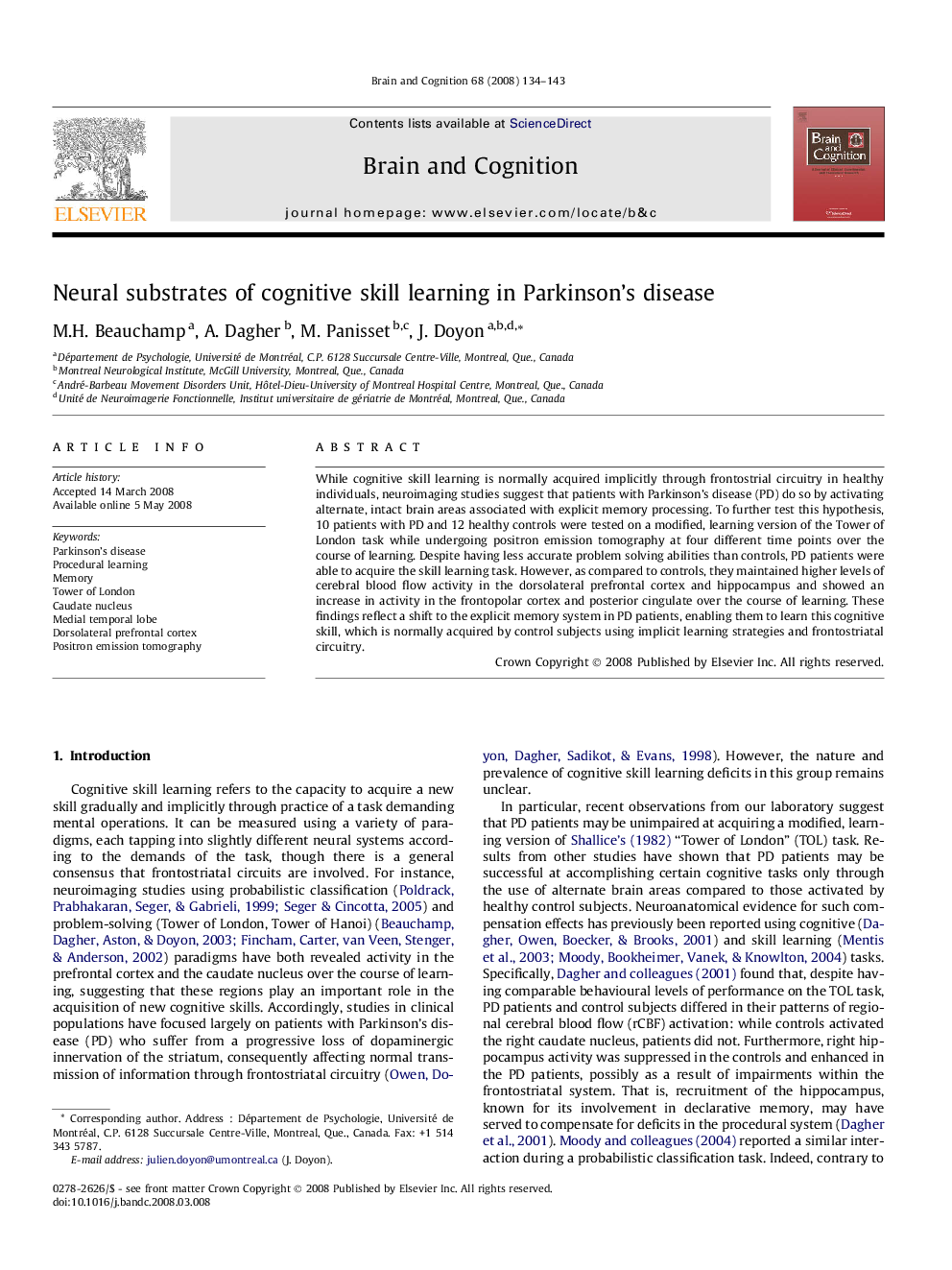| Article ID | Journal | Published Year | Pages | File Type |
|---|---|---|---|---|
| 924720 | Brain and Cognition | 2008 | 10 Pages |
While cognitive skill learning is normally acquired implicitly through frontostrial circuitry in healthy individuals, neuroimaging studies suggest that patients with Parkinson’s disease (PD) do so by activating alternate, intact brain areas associated with explicit memory processing. To further test this hypothesis, 10 patients with PD and 12 healthy controls were tested on a modified, learning version of the Tower of London task while undergoing positron emission tomography at four different time points over the course of learning. Despite having less accurate problem solving abilities than controls, PD patients were able to acquire the skill learning task. However, as compared to controls, they maintained higher levels of cerebral blood flow activity in the dorsolateral prefrontal cortex and hippocampus and showed an increase in activity in the frontopolar cortex and posterior cingulate over the course of learning. These findings reflect a shift to the explicit memory system in PD patients, enabling them to learn this cognitive skill, which is normally acquired by control subjects using implicit learning strategies and frontostriatal circuitry.
